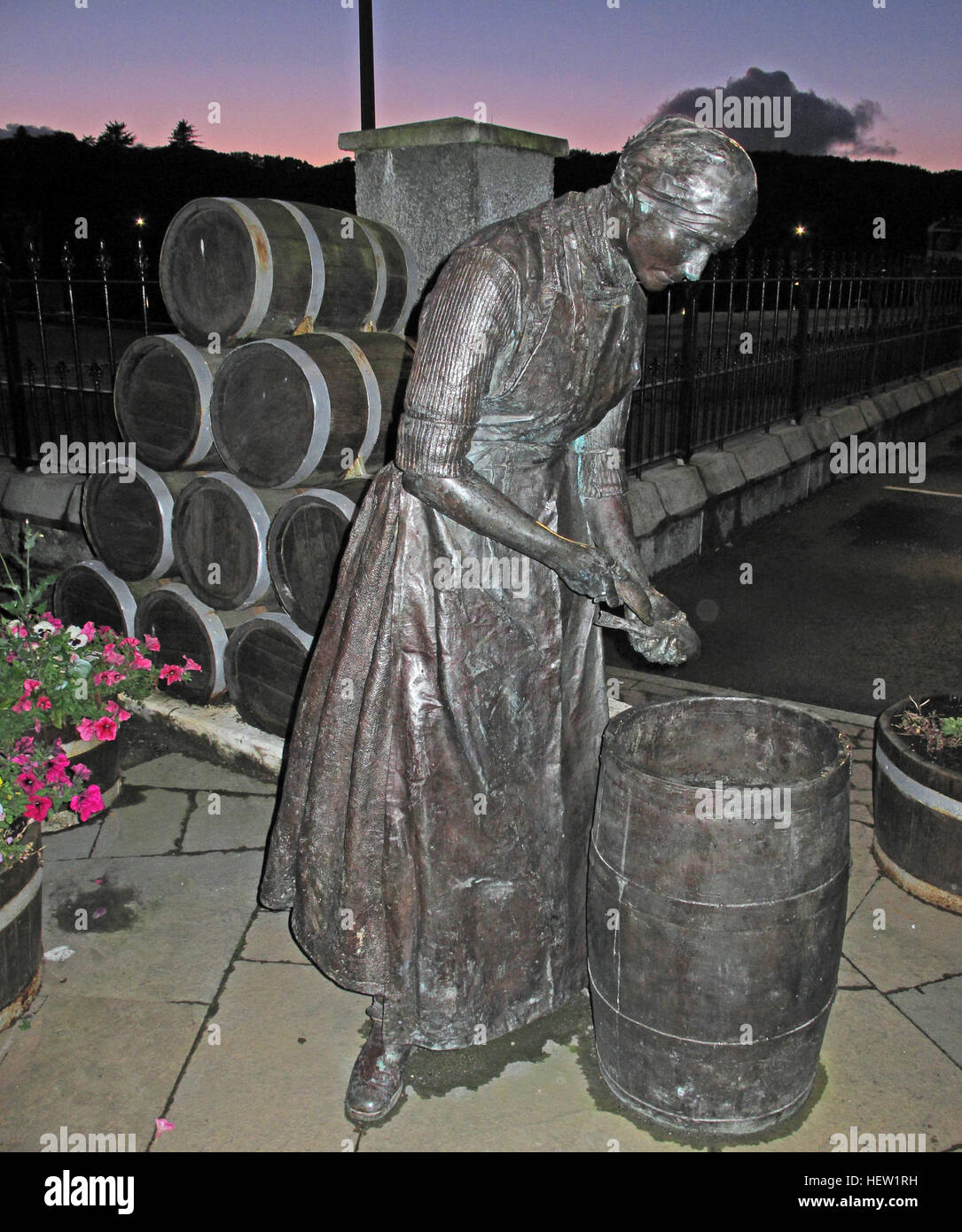Stornoway Isle Of Lewis Herring Girl Am Hafen statue at dusk

Image details
Contributor:
Tony Smith / Alamy Stock PhotoImage ID:
HEW1RHFile size:
25.6 MB (1.4 MB Compressed download)Releases:
Model - no | Property - noDo I need a release?Dimensions:
2736 x 3276 px | 23.2 x 27.7 cm | 9.1 x 10.9 inches | 300dpiDate taken:
16 August 2011Location:
Stornoway, Isle of Lewis, Scotland, UKMore information:
Stornoway - The herring girls The Herring Girls played an important part in The history of Stornoway. The Fishing Industry afforded many families a wage and indeed a living. The work of women in the heyday of the Herring fishery has been well documented, with plays being written and performed , poetry being written about these brave hardworking girls. Here is a brief summary of the herring girls. In Stornoway the work of women in the heyday of the Herring fishery is commemorated by two statues, one on North Beach Quay and the other on South Beach Quay. The picture above shows a herring girl working gutting a herring. The girl has a barrel similar to those that were used in the herring industry throughout the 19th and 20th century. The Herring Industry in 1914 In 1914 a combined 20% of the Isle of Lewis' population (3, 000 women and another 1, 600 men) were involved in the herring industry.In the early 20th century the fishing ports of Scotland were packed with women who worked the summer gutting herring, before heading down the east coast of England following the fishing. For the women of that time there wasn't much work available and even though being a "herring girl" was jolly hard work - with long long hours and very low wages many of the girls loved the company of the other girls and looked forward to the start of the herring season. Although many of the girls working in the Stornoway herring industry - came from The Islands - they also worked alongside girls who came from all over Scotland - these girls travelled from port to port - wherever the work was on offer.